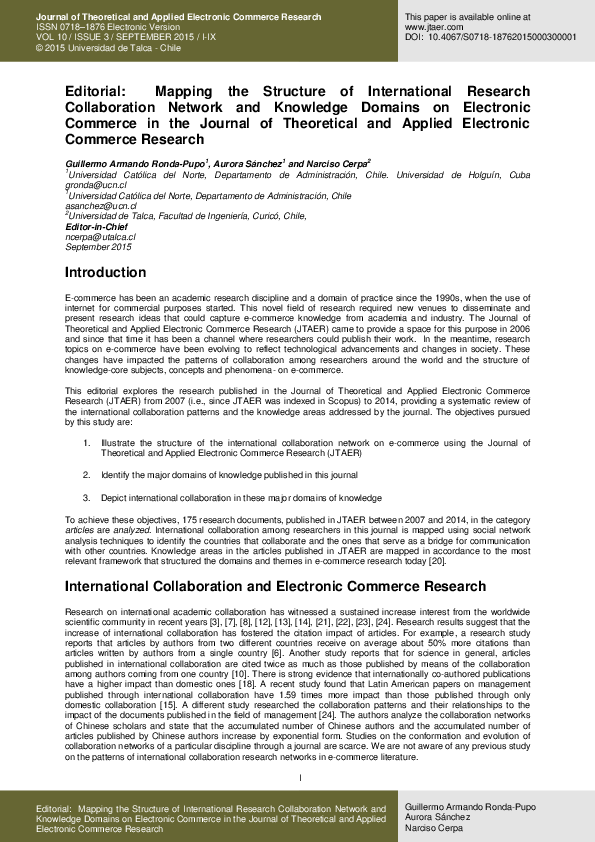A Conceptual Approach to Understanding the Customer Experience in E-Commerce: An Empirical Study
IF 5.1
3区 管理学
Q1 BUSINESS
Journal of Theoretical and Applied Electronic Commerce Research
Pub Date : 2024-07-30
DOI:10.3390/jtaer19030096
引用次数: 0
Abstract
This study aimed to identify the constructs related to customer experience that underpin e-commerce, as well as their interconnections, to develop a comprehensive conceptual model based on theories-in-use. A quantitative approach was employed through a survey of 441 respondents. Data analysis was conducted using partial least squares structural equation modeling. The research findings revealed that there are a total of 11 constructs: customer experience, customer satisfaction, customer loyalty, word-of-mouth, trust, perceived risk, security and privacy, web content, perceived price, perceived value, and service quality. Furthermore, twelve relationships were established between these constructs, which led to the development of a holistic conceptual model. The identified constructs and the relationships between them are hierarchized, which has practical implications for businesses. It allows them to concentrate on operational activities and formulate and implement strategies that are valued by consumers and supported by empirical evidence. The originality and value of this research lie in the conception and development of a comprehensive e-commerce model, which includes eleven constructs and twelve relationships. It also highlights the pivotal role of the customer experience.理解电子商务中客户体验的概念方法:实证研究
本研究旨在确定支撑电子商务的与客户体验相关的构造及其相互联系,从而在使用中理论的基础上建立一个全面的概念模型。研究采用定量方法,对 441 名受访者进行了调查。数据分析采用偏最小二乘法结构方程模型。研究结果显示,共有 11 个构念:客户体验、客户满意度、客户忠诚度、口碑、信任、感知风险、安全与隐私、网络内容、感知价格、感知价值和服务质量。此外,还在这些构念之间建立了十二种关系,从而建立了一个整体概念模型。所确定的构造及其之间的关系是分层的,这对企业具有实际意义。它使企业能够集中精力开展经营活动,制定和实施受消费者重视并有实证支持的战略。这项研究的独创性和价值在于构思和开发了一个全面的电子商务模型,其中包括 11 个构造和 12 种关系。它还强调了客户体验的关键作用。
本文章由计算机程序翻译,如有差异,请以英文原文为准。
求助全文
约1分钟内获得全文
求助全文
来源期刊
CiteScore
9.50
自引率
3.60%
发文量
67
期刊介绍:
The Journal of Theoretical and Applied Electronic Commerce Research (JTAER) has been created to allow researchers, academicians and other professionals an agile and flexible channel of communication in which to share and debate new ideas and emerging technologies concerned with this rapidly evolving field. Business practices, social, cultural and legal concerns, personal privacy and security, communications technologies, mobile connectivity are among the important elements of electronic commerce and are becoming ever more relevant in everyday life. JTAER will assist in extending and improving the use of electronic commerce for the benefit of our society.

 求助内容:
求助内容: 应助结果提醒方式:
应助结果提醒方式:


